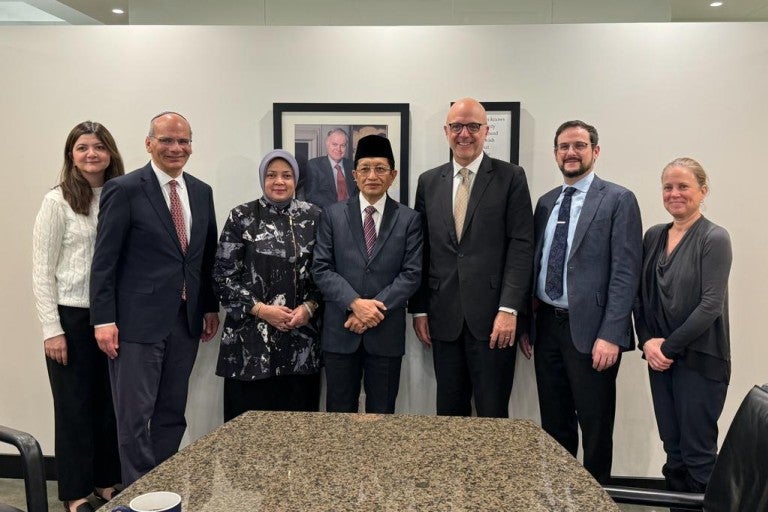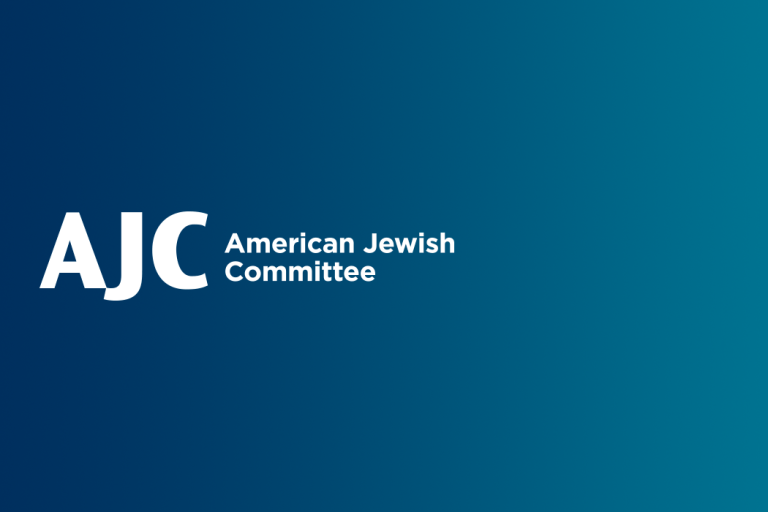December 18, 2018 — New York
Elder Quentin L. Cook, an apostle of The Church of Jesus Christ of Latter-day Saints, visited AJC headquarters today to meet with senior leadership of the global Jewish advocacy organization.
Elder Cook is a member of the Quorum of the Twelve Apostles, the Church of Jesus Christ’s second-highest governing body, the highest being the First Presidency. His visit was the second by top Church leaders to AJC headquarters. In 2014, two apostles, Elders L. Tom Perry and D. Todd Christofferson came to AJC, a historic visit that further deepened and expanded the relationship between AJC and the Church.
“AJC’s relationship with The Church of Latter-day Saints is about shared values, mutual dedication to our peoples’ continuity, and commitment to the U.S. as a country of immigrants where the rights of all, particularly minorities, must be protected,” said AJC President John Shapiro at the start of the luncheon conversation.
“Latter-day Saints and Jews have a natural connection,” said Cook, referring to similarities between the two faiths, particularly in their focus on education. Cook noted that the Church’s support for the Jewish return to their holy land predates Israel’s founding by more than a century. “On a personal level there have always been relationships,” said Cook, adding that AJC has had a role in advancing the more formal leader to leader dialogue.
The relationship with the Church, a fast-growing faith group, is a priority for AJC in its pioneering interreligious work. High-level national AJC delegations visited Latter-day Saints Church headquarters in August 2012 and November 2013. Elder Cook led AJC leadership in a tour of the Church’s Philadelphia Temple before its dedication in August 2016. Earlier this year, AJC representatives constituted the sole national Jewish organizational delegation attending the funeral of longtime Church president Thomas Monson.
AJC also has initiated Jewish dialogue with Latter-day Saints in cities across the United States and several AJC regional delegations have met with key Church figures in Salt Lake City.
“The strength of the relationship has been our ability to identify shared interests and elevate them,” said Shapiro. “When there have been crises in the relationship, such as the posthumous baptism controversy, the Church and the Jewish people, with AJC leadership, have engaged to solve our differences, to strengthen our relationship.”
Rabbi Noam Marans, AJC’s Director of Interreligious and Intergroup Relations, who also spoke at the lunch meeting, has been central to AJC’s positively evolving ties with the Church.
In addition to Shapiro, AJC Board of Governors Chair Harriet Schleifer and Honorary President Stanley Bergman participated in the meeting.


